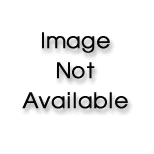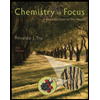
CHEMISTRY IN FOCUS W/ OWL (LL)>IP<
6th Edition
ISBN: 9781337306317
Author: Tro
Publisher: CENGAGE L
expand_more
expand_more
format_list_bulleted
Question
Chapter 17, Problem 40E
Interpretation Introduction
Interpretation:
The term ‘narcotics’ is to be explained and the examples of narcotics are to be given.
Concept Introduction:
Narcotics are regarded as the drugs that diminish pain. They work as an analgesic and a sedative.
Narcotics should not be confused with depressants as they differ from depressants in their great ability to reduce painand their lower tendency to produce generalized sedation. They also work differently from depressants.
Expert Solution & Answer
Want to see the full answer?
Check out a sample textbook solution
Students have asked these similar questions
What would happen if you added the
HCI to the Grignard reagent before
adding benzophenone? Draw a
reaction mechanism to support your
answer.
At 300 K, in the decomposition reaction
of a reactant R into products, several
measurements of the concentration of R
over time have been made (see table).
Calculate the order of the reaction.
t/s
[R]/ (mol L-1)
0
0,5
171
0,16
720
0,05
1400
0,027
Write the correct IUPAC names of the molecules in the picture
Chapter 17 Solutions
CHEMISTRY IN FOCUS W/ OWL (LL)>IP<
Ch. 17 - Prob. 1SCCh. 17 - Prob. 1ECh. 17 - Prob. 2ECh. 17 - Prob. 3ECh. 17 - Prob. 4ECh. 17 - Prob. 5ECh. 17 - Prob. 6ECh. 17 - Prob. 7ECh. 17 - Prob. 8ECh. 17 - Prob. 9E
Ch. 17 - Prob. 10ECh. 17 - Prob. 11ECh. 17 - Prob. 12ECh. 17 - Prob. 13ECh. 17 - Prob. 14ECh. 17 - Prob. 15ECh. 17 - Prob. 16ECh. 17 - Prob. 17ECh. 17 - Prob. 18ECh. 17 - Prob. 19ECh. 17 - Prob. 20ECh. 17 - Prob. 21ECh. 17 - Prob. 22ECh. 17 - Prob. 23ECh. 17 - Prob. 24ECh. 17 - Prob. 25ECh. 17 - Prob. 26ECh. 17 - Prob. 27ECh. 17 - Prob. 28ECh. 17 - Prob. 29ECh. 17 - How do cancer-fighting chemicals target cancerous...Ch. 17 - Prob. 31ECh. 17 - Prob. 32ECh. 17 - Prob. 33ECh. 17 - Prob. 34ECh. 17 - Prob. 35ECh. 17 - Prob. 36ECh. 17 - Prob. 37ECh. 17 - Prob. 38ECh. 17 - Prob. 39ECh. 17 - Prob. 40ECh. 17 - Prob. 41ECh. 17 - Prob. 42ECh. 17 - Prob. 43ECh. 17 - Prob. 44ECh. 17 - How do drugs like naltrexone and methadone help a...Ch. 17 - What are endorphins?Ch. 17 - Prob. 47ECh. 17 - What are the effects of cocaine and amphetamine?...Ch. 17 - Prob. 49ECh. 17 - Prob. 50ECh. 17 - Prob. 51ECh. 17 - What are the side effects of smoking?Ch. 17 - What is a hallucinogen? Give some examples.Ch. 17 - Prob. 54ECh. 17 - Prob. 55ECh. 17 - What are the primary effects of LSD and of...Ch. 17 - Prob. 57ECh. 17 - Prob. 58ECh. 17 - Prob. 59ECh. 17 - Prob. 60ECh. 17 - Prob. 61ECh. 17 - Draw the chemical structure of aspirin, and...Ch. 17 - Prob. 63ECh. 17 - Prob. 64ECh. 17 - Prob. 65ECh. 17 - Prob. 66ECh. 17 - Prob. 67ECh. 17 - Prob. 68ECh. 17 - Prob. 69ECh. 17 - Prob. 70ECh. 17 - Prob. 71ECh. 17 - Prob. 72ECh. 17 - Prob. 73ECh. 17 - Prob. 74ECh. 17 - Prob. 75ECh. 17 - Prob. 76ECh. 17 - Prob. 77ECh. 17 - Prob. 78E
Knowledge Booster
Similar questions
- How many grams of solid NaCN have to be added to 1.5L of water to dissolve 0.18 mol of Fe(OH)3 in the form Fe(CN)63 - ? ( For simplicity, ignore the reaction of CN - ion with water) Ksp for Fe(OH)3 is 2.8E -39, and Kform for Fe(CN)63 - is 1.0E31arrow_forwardDraw the most stable chair conformation of 1-ethyl-1-methylcyclohexane, clearly showing the axial and equatorial substituents. [4] Draw structures corresponding to the following IUPAC name for each of the following compounds; [5] i) 4-Isopropyl-2,4,5-trimethylheptane ii) trans-1-tert-butyl-4-ethylcyclohexane iii) Cyclobutylcycloheptane iv) cis-1,4-di-isopropylcyclohexane (chair conformation) v) 3-Ethyl-5-isobutylnonanearrow_forwardDraw and name molecules that meet the following descriptions; [4] a) An organic molecule containing 2 sp2 hybridised carbon and 1 sp-hybridised carbon atom. b) A cycloalkene, C7H12, with a tetrasubstituted double bond. Also answer question 2 from the imagearrow_forward
- H 14. Draw the line angle form of the following molecule make sure you use the proper notation to indicate spatial positioning of atoms. F F H 15. Convert the following condensed form to line angle form: (CH3)3CCH2COCH2CON(CH2CH3)2arrow_forwardIn a reaction between two reactants A and B, the half-life is the same for both only if(A) the stoichiometry A:B is 1:1.(B) the stoichiometry A:B is 1:2 or 2:1.arrow_forwardIn a reaction between two reactants A and B, the half-life is the same for both.(1) Only if the stoichiometry A:B is 1:1.(2) If the initial quantities of A and B are in their stoichiometric ratios.arrow_forward
- There are 48 pairs of students in the following table. Each pair has quantitatively determined the mass of taurine in a 250 mL can of the popular energy drink marketed as “Munster” using High Performance Liquid Chromatography (HPLC). The class results are presented below: QUESTION: Calculate the measurement of uncertainty and provide the data in a spreadsheet table. Mass of Taurine (mg) Mass of Taurine (mg) (Table continued) 152.01 152.23 151.87 151.45 154.11 152.64 152.98 153.24 152.88 151.45 153.49 152.48 150.68 152.33 151.52 153.63 152.48 151.68 153.17 153.40 153.77 153.67 152.34 153.16 152.57 153.02 152.86 151.50 151.23 152.57 152.72 151.54 146.47 152.38 152.44 152.54 152.53 152.54 151.32 152.87 151.24 153.26 152.02 152.90 152.87 151.49 152.46 152.58arrow_forward1. Predict the organic product(s) of the following reactions. Assume excess of reagents unless otherwise noted. a) &l BH3 •THF b) 1) NaOH 2) H3O+ solve d) ala 1) EtMgBr 2) H3O+ e) H2N سكر CuLi NH2 1) SOCI2 2) EtMgBr 3) H3O+ NC H3O+ Δarrow_forwardThere are 48 pairs of students in the following table. Each pair has quantitatively determined the mass of taurine in a 250 mL can of the popular energy drink marketed as “Munster” using High Performance Liquid Chromatography (HPLC). The class results are presented below: QUESTION: Summarise and report these results including an indication of measurement uncertainty. In both calculation samples calculate if an outlier is present, max value, number of samples, mean, standard deviation, g (suspect), g (critical) and t (critical). Mass of Taurine (mg) Mass of Taurine (mg) (Table continued) 152.01 152.23 151.87 151.45 154.11 152.64 152.98 153.24 152.88 151.45 153.49 152.48 150.68 152.33 151.52 153.63 152.48 151.68 153.17 153.40 153.77 153.67 152.34 153.16 152.57 153.02 152.86 151.50 151.23 152.57 152.72 151.54 146.47 152.38 152.44 152.54 152.53 152.54 151.32…arrow_forward
- Indicate the rate expressions for reactions that have order 0, 1, and 2.arrow_forwardPROBLEMS Q1) Label the following salts as either acidic, basic, or neutral a) Fe(NOx) c) AlBr b) NH.CH COO d) HCOON (1/2 mark each) e) Fes f) NaBr Q2) What is the pH of a 0.0750 M solution of sulphuric acid?arrow_forward8. Draw all the resonance forms for each of the fling molecules or ions, and indicate the major contributor in each case, or if they are equivalent (45) (2) -PH2 سمة مدarrow_forward
arrow_back_ios
SEE MORE QUESTIONS
arrow_forward_ios
Recommended textbooks for you

 Principles of Modern ChemistryChemistryISBN:9781305079113Author:David W. Oxtoby, H. Pat Gillis, Laurie J. ButlerPublisher:Cengage Learning
Principles of Modern ChemistryChemistryISBN:9781305079113Author:David W. Oxtoby, H. Pat Gillis, Laurie J. ButlerPublisher:Cengage Learning Chemistry In FocusChemistryISBN:9781305084476Author:Tro, Nivaldo J., Neu, Don.Publisher:Cengage Learning
Chemistry In FocusChemistryISBN:9781305084476Author:Tro, Nivaldo J., Neu, Don.Publisher:Cengage Learning Chemistry & Chemical ReactivityChemistryISBN:9781337399074Author:John C. Kotz, Paul M. Treichel, John Townsend, David TreichelPublisher:Cengage Learning
Chemistry & Chemical ReactivityChemistryISBN:9781337399074Author:John C. Kotz, Paul M. Treichel, John Townsend, David TreichelPublisher:Cengage Learning Chemistry & Chemical ReactivityChemistryISBN:9781133949640Author:John C. Kotz, Paul M. Treichel, John Townsend, David TreichelPublisher:Cengage LearningChemistry: Matter and ChangeChemistryISBN:9780078746376Author:Dinah Zike, Laurel Dingrando, Nicholas Hainen, Cheryl WistromPublisher:Glencoe/McGraw-Hill School Pub Co
Chemistry & Chemical ReactivityChemistryISBN:9781133949640Author:John C. Kotz, Paul M. Treichel, John Townsend, David TreichelPublisher:Cengage LearningChemistry: Matter and ChangeChemistryISBN:9780078746376Author:Dinah Zike, Laurel Dingrando, Nicholas Hainen, Cheryl WistromPublisher:Glencoe/McGraw-Hill School Pub Co


Principles of Modern Chemistry
Chemistry
ISBN:9781305079113
Author:David W. Oxtoby, H. Pat Gillis, Laurie J. Butler
Publisher:Cengage Learning

Chemistry In Focus
Chemistry
ISBN:9781305084476
Author:Tro, Nivaldo J., Neu, Don.
Publisher:Cengage Learning

Chemistry & Chemical Reactivity
Chemistry
ISBN:9781337399074
Author:John C. Kotz, Paul M. Treichel, John Townsend, David Treichel
Publisher:Cengage Learning

Chemistry & Chemical Reactivity
Chemistry
ISBN:9781133949640
Author:John C. Kotz, Paul M. Treichel, John Townsend, David Treichel
Publisher:Cengage Learning

Chemistry: Matter and Change
Chemistry
ISBN:9780078746376
Author:Dinah Zike, Laurel Dingrando, Nicholas Hainen, Cheryl Wistrom
Publisher:Glencoe/McGraw-Hill School Pub Co